A Guide to Ethical and Sustainable Jewellery Shopping
Discover how to make responsible choices when purchasing jewellery that respects both people and the environment...
When it comes to purchasing jewellery, it's important to consider the effects on both the environment and the individuals involved in the production process. Unfortunately, the jewellery industry faces numerous challenges, including labour laws and mining practices, which are often overlooked by consumers. However, there are options available for those who wish to make ethical and sustainable choices.
In this blog, we will guide you through the process of buying jewellery that is both ethical and environmentally friendly. We will highlight important factors to consider and provide advice on where to find such products.
Understanding the Issues in the Jewellery Industry:
To make informed decisions, it's crucial to be aware of the challenges faced by the jewellery industry:
a. The Environmental Impact of Mining Practices: Mining for precious metals and gemstones can have a devastating impact on ecosystems, including deforestation, water pollution, and habitat destruction.
b. The Social Issues Related to Labour Conditions: The jewellery industry has been associated with poor labour conditions, including low wages, unsafe working conditions, and human rights abuses. It's important to support companies that prioritize fair treatment and worker well-being.
c. The Challenges of Traceability and Transparency: The lack of transparency in the supply chain makes it difficult to trace the origins of gemstones and metals, increasing the risk of unethical practices such as conflict minerals.
Materials Matter: Choosing Eco-Friendly Options:
Consider sustainable alternatives to traditional jewellery materials:
a. Recycled Metals and Gemstones: Opt for jewellery made from recycled precious metals and gemstones. These materials reduce the demand for mining and minimize environmental impact.
b. Lab-Grown Diamonds and Synthetic Gemstones: Choose lab-grown diamonds or synthetic gemstones, which have a smaller carbon footprint compared to their mined counterparts.
c. Wood, Glass, and Other Eco-Friendly Materials: Explore jewellery made from sustainable materials like wood, glass, shell or recycled materials, which offer unique and environmentally conscious options.
d. Look for brands that support the making of jewellery using repurposed waste materials such as coconut shell, wire and bottle tops. Artisans worldwide are becoming increasingly creative and inventive in their handicrafts using waste/ upcycled materials. In supporting the work of these artisans we accelerate the global transition to a circular economy.
Ethical Sourcing and Fair Labour Practices:
Recognize the importance of ethical sourcing and fair labour practices in the jewellery industry:
a. Fair-Trade Gold and Conflict-Free Diamonds: Look for jewellery crafted with fair-trade gold, which ensures miners receive fair wages and work in safe conditions. Additionally, prioritise conflict-free diamonds to avoid supporting unethical practices.
b. Artisanal and Small-Scale Mining Initiatives: Support brands that engage in artisanal and small-scale mining initiatives, promoting sustainable livelihoods for local communities.
c. Supporting Brands that Prioritise Fair Labour Practices: Research and choose brands that have a commitment to fair labor practices, such as providing fair wages, safe working conditions, and supporting worker rights.
Embracing Slow Fashion and Timeless Design:
Make sustainable choices when it comes to jewellery design:
a. Opting for Timeless, Versatile Pieces: Choose jewellery with timeless designs that can be worn for years, reducing the need for frequent replacements and minimising waste.
b. Choosing Quality Over Quantity: Prioritise high-quality jewellery that is built to last, rather than opting for cheap, fast-fashion pieces that contribute to a throwaway culture.
c. The Role of Slow Fashion in Sustainable Jewellery: Embrace the principles of slow fashion by investing in jewellery that is ethically made, durable, and aligns with your personal style.
Finding Ethical and Sustainable Jewellery Brands:
Tips for discovering jewellery brands that prioritize ethics and sustainability:
a. Researching Company Values and Commitments: Look for brands that openly share their values and commitments to ethical and sustainable practices. Visit their websites, read reviews, and seek out certifications or memberships in industry organisations.
b. Looking for Certifications and Transparency: Seek out brands that have certifications, such as the Responsible Jewellery Council (RJC) certification or Fairtrade certification. These certifications provide assurance that the brand adheres to specific ethical and sustainable standards in their production processes.
c. Supporting Local Artisans and Small Businesses: Consider purchasing jewellery from local artisans or small businesses that prioritise ethical practices. These businesses often have transparent supply chains and offer unique, handcrafted pieces that support local economies and traditional craftsmanship.
Conclusion:
By making responsible choices when purchasing jewellery, we can contribute to a more sustainable and ethical industry. Understanding the challenges faced by the jewellery industry, choosing eco-friendly materials, prioritising ethical sourcing and fair labour practices, embracing slow fashion and timeless design, and supporting brands that prioritise sustainability are all essential steps.
Additionally, looking for certifications and transparency and supporting local artisans and small businesses further enhance our ability to make a positive impact. With these considerations in mind, we can enjoy beautiful jewellery while respecting both people and the environment.
At RainbowLife all our jewellery is fair trade and made from sustainable materials such as wood, shell, fabric and Karen Hilltribe Silver(which is recycled & recyclable). We also buy a range of jewellery made from repurposed waste materials. We do not purchase jewellery that contains plastic.
Click here for our collection of upcycled jewellery.
Click here for our collection of sustainable & fair trade jewellery.


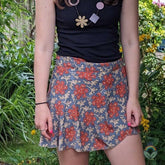
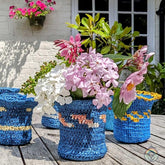

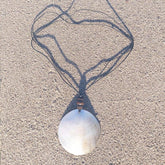
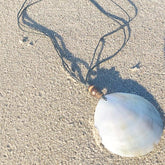




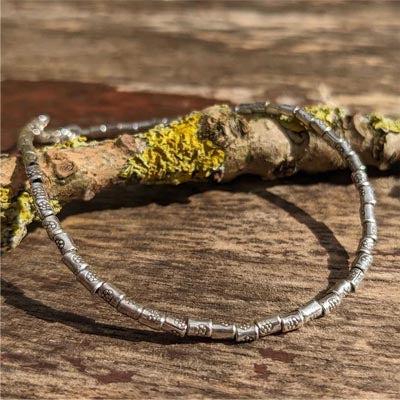
Leave a comment
All blog comments are checked prior to publishing